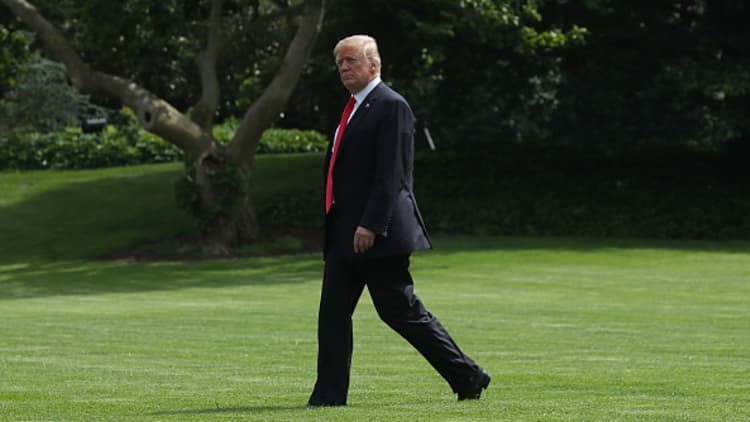ABC revived Roseanne Barr's working-class-themed television show even though she had compared a prominent African-American to an ape back in 2013. The network invoked cultural diversity.
ABC canceled Roseanne on Tuesday after Barr tweeted a similar comparison — even though the show had become a hit slated to reap $60 million in advertising next season. The network condemned her bigotry as "repugnant."
The message from those events can sound as muddled as the one from recent elections. Americans made Barack Obama their first black president — and then elected Donald Trump, who has sympathized with white supremacists, disdained African-Americans protesting injustice, and crudely demeaned immigrants.

Yet a pattern lies beneath today's noise. It follows the last half-century of American history toward less racism and more tolerance. Though halting and fitful, the path leads in only one direction over time.
During the 1960s, the federal government outlawed racial discrimination in education, employment, public accommodations and voting rights. It erased state laws banning interracial marriage. It opened the U.S. to increased immigration.
Principles of equality gained near-universal acceptance. Polling amassed by the University of Illinois' Institute of Government and Public Affairs showed that by 1972, 97 percent of whites agreed blacks should have equal job opportunities; by 1997, 95 percent said they would vote for a black presidential candidate; by 2011, 86 percent approved of interracial marriage.
Laws can only eliminate discrimination in theory. A chasm separates principles and practice.
The ideals they expressed provoked fierce, still-unresolved conflicts over how to realize them and turned the political parties inside out. White backlash helped Republicans build an electoral majority.
Increasing diversity
But America's increasing diversity eroded that majority and changed attitudes further. Obama's election — not once, but twice — demonstrated those shifts.
That produced its own backlash. Trump rose in politics by spreading the fiction that Obama was not born in America.
Researchers found that his core 2016 supporters — disproportionately older, less-educated white Christians — expressed outsized resentment toward racial and religious minorities. Reminding whites that they will one day become an American minority, one study concluded, deepened their support for Trump.
As president, Trump has courted and comforted that constituency. But the constituency, notwithstanding the volume of Trump's megaphone, is shrinking.
The nation grows more diverse and better-educated year by year. In a quarter-century, the Census projects, America will be a majority-minority country.
In a globally connected economy, money and influence follow that evolution.
Different experiences
After Trump praised "both sides" at a white supremacist rally in Charlottesville, Virginia, last summer, corporate leaders ended their participation in White House advisory panels. Those decisions mirrored yesterday's move by ABC, averting intense pressure on its advertisers.
The younger Americans corporate marketers covet have been shaped by fundamentally different life experiences. Just 28 percent of baby boomers are non-white, but 44 percent of millennials are, a Pew Research poll earlier this year found.
Younger whites have different attitudes as a result. The Pew poll revealed that white millennials are more likely than their parents to fault discrimination for holding blacks back, and support more government action to help.
The same Pew survey found overwhelming opposition among white millennials to Trump's proposed wall on the Mexican border. Among Republican millennials, 61 percent called openness essential to America's identity.
It is similarly essential to the individual identities of a growing subset of Americans.
Five decades after the Supreme Court made it legal for people of different races to wed, Pew concluded from Census data that one in six marriages is interracial. One in seven American infants is multiracial.
Two months ago, Trump boasted to supporters that Roseanne's blockbuster early ratings were "about us." He has not yet addressed the show's demise, even while complaining on Twitter today that ABC never renounced "HORRIBLE" statements about him.
But ABC's decision, and the public attitudes that propelled it, recall Obama's fondness for an observation by Martin Luther King Jr.: "The arc of the moral universe is long, but it bends toward justice." It bends toward tolerance, too.
WATCH: Sanders says Disney CEO Iger should have apologized to Trump




